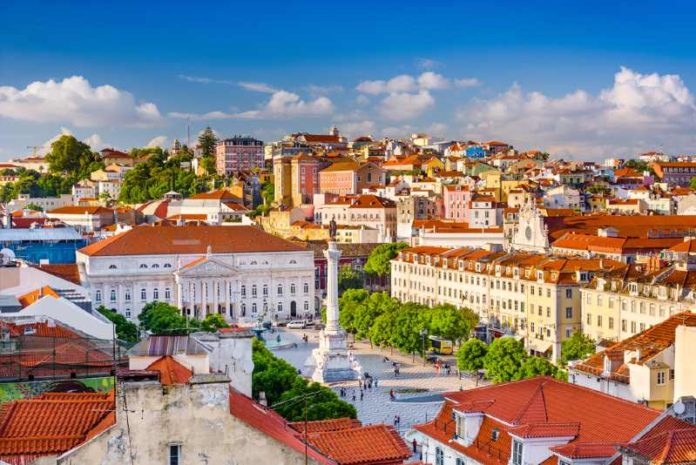Lisbon is fast being considered the California of Europe. And that’s not just because of its west coast setting and balmy climate — the city is getting increasingly competitive with Silicon Valley.
International investors have been flocking to Portugal in their droves, with the number of foreign residents growing for four straight years, culminating in around 90,000 new residents in 2019. Many are heading to the Portuguese capital, with the 2018 Immigration, Frontiers and Asylum Report finding that almost half of overseas residents in the country have moved to Lisbon. Indeed, foreign direct investment (FDI) in the city has been growing steadily for some time now, with greenfield FDI in software & IT rising for six consecutive years since 2013.
Lisbon’s pull has been epitomised by major international companies deciding to set up shop there, including Google. The tech giant opened up a technology centre in the town of Oeiras, on the city’s outskirts, in 2018, creating 500 jobs. Multinational software corporation SAP has also set up shop in the exact same location, providing a headquarters for a range of consultancy, development and project management roles for SAP specialists across the country.
But just what is it about Lisbon that has proved so attractive to the world’s startups?
Access to talent
Portugal’s outstanding education system is supplying its startups with a stream of young, highly qualified talent. The country was ranked 20th in the world in US News’ 2020 Best Countries for Education, and produces around 100,000 graduates a year, many armed with strong English-speaking skills. This makes Portuguese graduates perfect for international enterprises, seeing as English is the lingua franca of the business world.
The country also welcomes around 50,000 international students a year, and with both University of Lisbon and the Universidade Nova de Lisboa ranked in the QS World University Rankings 2020, this ensures a steady pool of talented graduates in the city. Portugal’s — and, by extension, Lisbon’s — new workforce has also been boosted by the aforementioned influx of immigrants.
Generous government schemes
There are plenty of incentives for startups to launch in Lisbon, owing to a number of pro-business government schemes, such as visa programmes. One of the most notable is the Startup Visa, a residence visa for non-EU startup founders which encourages them to expand their existing business into Portugal, or launch a new venture there. This is complemented by the Tech Visa, which makes it simpler for Portugal-based enterprises to hire talent from outside the EU. A similar initiative is the Golden Visa scheme, benefiting those who invest €500,000 or more in property. However, this is set to be scaled back in Lisbon and Porto to promote investment in low-density regions.
There are also a range of tax incentives on offer for entrepreneurs. For instance, investments of up to €5 million are eligible for tax deductions of 20%, while the overall corporate income tax rate is 21%, considerably below the OECD and EU average. Meanwhile, the Portuguese government has sought to slash the red tape involved with setting up a business, with entrepreneurs now able to do this online. All of this has catapulted Portugal further up the Ease of Doing Business Index, with the country ranking 39th out of 190 in the 2020 list.
The city’s attractive lifestyle
With its Mediterranean climate, laid back culture, and outstanding cuisine, moving to Lisbon is an enticing prospect for anyone. When it comes to business meetings alone, it is the sixth most popular city globally according to the International Congress & Convention Association. Mercer’s “Quality of Living 2019” rated it overall as the 37th best city in the world in terms of quality of life, putting it ahead of London, Paris and New York. Lisbon also scored highly for factors such as safety, low unemployment and its economy.
The cost of living is also a lot lower than the likes of London, Berlin and Barcelona, though rent has been rising in recent years. More broadly, Portugal is one of Europe’s most politically stable countries, and the nation is seen as the antithesis of the wave of populism that is currently sweeping the continent. Add to this the government’s clear pro-international business stance, and it is clear why so many overseas companies have chosen to flock there.
Simon Davies is a freelance journalist interested in marketing, tech and small business. Follow him at @SimonTheoDavies.
Lisbon stock photo by ESB Professional/Shutterstock







